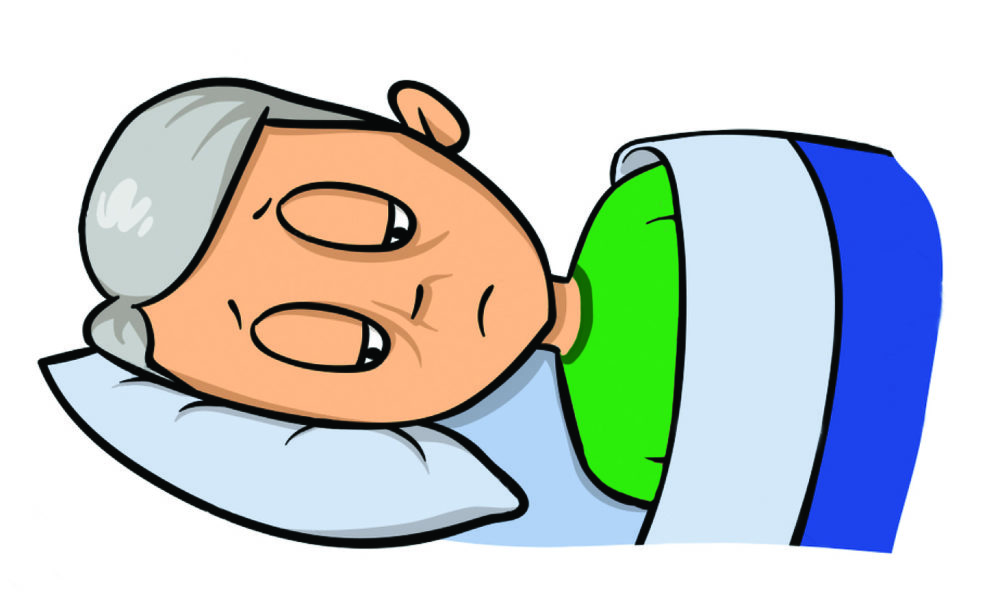
Sleep Disorders in Older Adults
(Highlighted Details for Alzheimer’s Disease , Heat Failure and Depression)
Sleep disorders in older adults involve any disrupted sleep pattern. This can include problems falling or staying asleep, too much sleep, or abnormal behaviors with sleep.
Causes
Sleep problems are common in older adults. The amount of sleep needed stays constant throughout the adult years. Doctors recommend that adults get 7 to 8 hours of sleep each night. In older adults, sleep is less deep and choppier than sleep in younger people.
A healthy 70-year-old may wake up several times during the night without it being due to disease.
Sleep disturbances in older adults may be due to any of the following:
Dementia is a loss of brain function that occurs with certain diseases. Alzheimer disease (AD) is the most common form of dementia. It affects memory, thinking, and behavior.
Causes
The exact cause of Alzheimer disease is not known. Research shows that certain changes in the brain lead to Alzheimer disease.
You are more likely to develop Alzheimer disease if you:
- Are older — Developing Alzheimer disease is not a part of normal aging.
- Have a close relative, such as a brother, sister, or parent with Alzheimer disease.
- Have certain genes linked to Alzheimer disease.
- Alcohol
- Changes in the body’s natural internal clock, causing some people to fall asleep earlier in the evening
- Long-term (chronic) disease, such as heart failure
Heart failure is a condition in which the heart is no longer able to pump oxygen-rich blood to the rest of the body efficiently. This causes symptoms to occur throughout the body.
Causes
– Heart failure is most often a long-term (chronic) condition, but it may come on suddenly. It can be caused by many different heart problems.
– The condition may affect only the right side or only the left side of the heart. More often, both sides of the heart are involved.
- Certain medicines, herbs, supplements, and recreational drugs
- Depression (depression is a common cause of sleep problems in people of all ages)
- Depression is a mental health condition. It is a mood disorder in which feelings of sadness, loss, anger, or frustration interfere with daily life for weeks or longer.
- Depression in older adults is a widespread problem, but it is not a normal part of aging. It is often not recognized or treated.
- Causes
- In older adults, life changes can increase the risk for depression or make existing depression worse. Some of these changes are:
– A move from home, such as to a retirement facility
– Chronic illness or pain
– Children moving away
– Spouse or close friends passing away
– Loss of independence (for example, problems getting around or caring for oneself, or loss of driving privileges)
– Depression can also be related to a physical illness, such as: Thyroid disorders, Parkinson disease, Heart disease, Cancer, Stroke, Dementia (such as Alzheimer disease)
- Not being very active
- Pain caused by diseases such as arthritis
- Stimulants such as caffeine and nicotine
- Frequent urination at night
Symptoms
Symptoms that may occur include:
- Difficulty falling asleep
- Difficulty telling the difference between night and day
- Early morning awakening
- Waking up often during the night
Exams and Tests
The health care provider will take a history and perform a physical exam to look for medical causes and determine which type of sleep disorder is causing the problem.
Treatment
Relieving chronic pain and controlling medical conditions such as frequent urination may improve sleep in some people. Treating depression can also improve sleep.
Sleeping in a quiet room that isn’t too hot or too cold and having a relaxing bedtime routine may help improve symptoms. Other ways to promote sleep include these healthy lifestyle tips:
- Avoid large meals shortly before bedtime.
- Avoid stimulants such as caffeine after mid-afternoon.
- Get regular exercise early in the day.
- Go to bed and wake up at the same time every day.
- DO NOT take naps.
- Use the bed only for sleep or sexual activity.
If you can’t fall asleep after 20 minutes, get out of bed and do a quiet activity such as reading or listening to music.
Avoid using sleeping pills to help you sleep, if possible. They can lead to dependence and can make sleep problems worse over time if you don’t use them the right way. Your provider should assess your risks of daytime sleepiness, mental (cognitive) side effects, and falls before you begin taking sleep medicines.
- If you think you need sleeping pills, talk with your provider about which pills are safe for you when taken properly. Certain sleeping pills should not be taken on a long-term basis.
- DO NOT drink alcohol at any time when you are using sleeping pills. Alcohol can make the side effects of all sleeping pills worse.
WARNING: The FDA has asked manufacturers of certain sleep medicines to put stronger warning labels on their products so that consumers are more aware of the potential risks. Possible risks while taking such medicines include severe allergic reactions and dangerous sleep-related behaviors, including sleep-driving. Ask your provider about these risks.
Outlook (Prognosis)
For most people, sleep improves with treatment. However, others may continue to have sleep disruptions.
Possible Complications
Possible complications are:
- Alcohol use
- Drug abuse
- Increased risk for falls (due to frequent urination at night)
When to Contact a Medical Professional
Call for an appointment with your provider if a lack of sleep or too much sleep is interfering with daily living.
Prevention
Getting regular exercise and avoiding as many causes of sleep disruption as possible and adequate exposure to natural light may help control sleep problems.
Alternative Names
Insomnia – older adults
For more detailed information:
https://medlineplus.gov/ency/article/000064.htm



